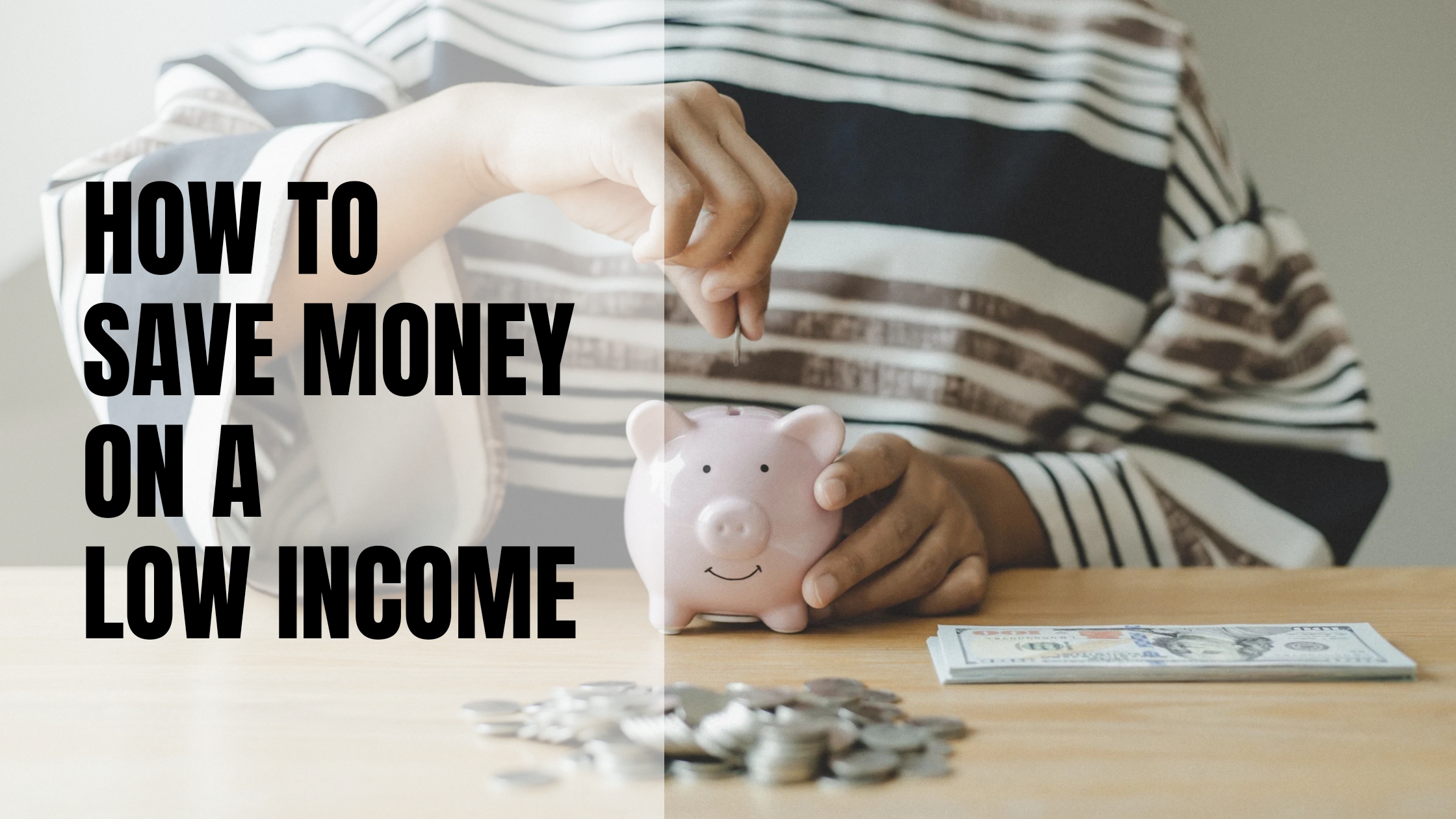Do you feel like achieving financial freedom is impossible for you? Read (or watch) on to learn the money mistakes you might be making that keeps you from significant financial progress.
As we mentioned above, we’re going to talk about 10 Common Money Mistakes You May Be Making Right Now. This will help you take a deeper look at the different aspects of your finances, and allow you to figure out how you can avoid making financial mistakes that can hinder your financial growth.
Money Mistake Number 1: Saving rather than investing
Did you know that just putting your money in the bank will result in you actually losing money over time. Inflation is a constant threat to any one who is actively involved in society and its economy.
Keeping your money in the bank further accentuates this threat because it means your money does not work for you and does not produce any additional value through investments, stocks, and assets such as real estate, art or any other product or resource that gains value over time. It simply devalues over time as inflation increases.
The whole concept may sound very simple, and that’s because it is. Money, mainly by way of inflation, continually loses its purchasing power, and so prices go up. The best way to keep up with the times is to invest some of your money to ensure that your wealth multiplies as time goes.
Money Mistake number 2: Being too scared to take financial risks
While protecting your money is definitely an important part of being able to accumulate and make your wealth grow, it’s also important to understand when to make a calculated financial risk that may allow your wealth to grow even more than if it had just stayed in your savings account.
There will come a time where you will have to withdraw those savings and use them on certain expenses. In that case, all your money really did for you was to stay there and be spent when the time came, earning only a rather tiny portion of interest, compared to if part of it was invested and was successful in making a return.
Let’s have an example: Let’s say you went and invested a reasonable part of your savings into an index fund and waited for that to turn a profit. It’s inherently a higher risk activity than if you simply left your money in the bank, but if it goes alright, you’ll be able to grow your wealth much, much more than if you relied solely on interest.
It’s all about taking calculated risks while having a safety net that will allow you to bounce back in case those risks you took didn’t pay off. It’s as the saying goes: You miss all the shots you don’t take.

Money Mistake Number 3: Not investing wisely
People can often invest without much preparation or research, possibly because they were given tips by friends, or they just decided to believe in whatever they were investing in, and these people would end up losing lots of money on those investments.
This mistake is even more exasperated when people believe that they’re all set when they own assets like a property or a business. While it is good to have assets like properties and businesses because they can potentially provide substantial amounts of passive income, that is not always the case. Tenants can miss their rent payments, or businesses like restaurants may not turn up a profit due to a number of reasons.
Investments like these can still be risky, as anything can happen that might affect how much you’ll be able to earn from them. This feeds back into the idea that you should always have a backup plan or a safety net that can sustain you in the event that something goes wrong while you attempt to assess and recover from the situation.
Money Mistake Number 4: Believing and investing in Get-Rich-Quick schemes
It’s understandable that you want to accumulate wealth. Anyone would want to, and being able to accumulate wealth quickly is certainly possible, as some people have actually become millionaires overnight or in the course of only a few weeks or months.
These people tend to be the exception, though, not the rule. And unfortunately, get-rich-quick schemes tend to take advantage of people’s hopes that they may one day become extremely rich over a short period of time.
Get-rich-quick schemes tend to be either a scam, or something that might just be illegal underneath all the layers of words and promises. Falling for money schemes will only end up with you losing time, energy, and money. It’s as they say: If it’s too good to be true, then it probably is.
Money Mistake Number 5: Spending more than you make
This is a mistake that is more universal than you may think, especially among young adults. Earning money can be a freeing experience, as you get some form of control over what you can do or can buy. But you should always do your best to keep composed and moderate your spending.
Not spending more than you make seems like a rather obvious strategy, but a lot of people tend to make this money mistake because they fail to keep track of their spending.
Not keeping track of your expenses and purchases can end up with you barely making it through each month as you attempt to cover the costs of things you’ve bought or agreed to pay in installations for. This also goes for if your income increases, and your living expenses increase with it.
It’s understandable to want to reward yourself for a job well done, and for getting through another month as a productive member of society. It’s also understandable if you want to buy something to impress others, but remember that the money you spend rewarding yourself could be put to use making even more money for you through investments, bonds, interest, and the acquisition of assets.

Mistake Number 6: Spending money on vices like cigarettes, drugs, and gambling
It’s fairly well known that drugs and smoking can help people feel good or escape from reality, if even for a bit. It can be fun at first, but even a quick Google search can lead you to websites like Gateway Foundation and Health.gov that inform you of risks that come with continued use of it.
It’s not only bad for your health in a variety of ways, such as a weakened immune system, and direct damage to several of your vital organs, but it also might be something that takes a big chunk out of your funds, especially if you’re an avid user of these substances.
We also can’t forget about the vice that can turn you broke overnight – gambling. What’s dangerous about this is it can start off as fun, a weekend entertainment where you only spend a few bucks, but then without realizing, it can turn into an addiction. There’s a reason why there are so many casinos, gambling parlors, and the likes. It’s a constantly thriving business because of people’s money.
Don’t get dragged into this “lifestyle” to avoid a major financial downfall.
Money Mistake Number 7: Relying heavily on credit cards
While some business applications do rely on credit cards, it doesn’t mean that you have to rely on credit cards yourself. We do get it, though. Credit cards can be a very useful addition to your financial repertoire of options if used responsibly.
Credit cards are useful, but they also promote impulse purchases through the mindset that you can afford pretty much everything, which can be a problem if self-control and careful planning is not practiced.
To combat this, try forming a habit of using cash or a debit card instead of credit cards. Paying with cash helps you understand the weight of your financial decisions a bit better than using a credit card, which will better inform your financial decisions.

Money Mistake Number 8: Not having an emergency fund
Even if you try your best to prepare as much as you can for unforeseen circumstances, there might still be situations that you weren’t prepared for, like unexpected job loss, sudden travel expenses, major health or dental expenses, repairs for a home, vehicle, or other assets, and even emergency pet care.
Having an emergency fund that amounts to around three to six months of living expenses is a good standard to uphold for emergency savings, and it should be considered a high-priority objective for everyone.
One way to accumulate emergency funds is by setting up automated deductions. This was discussed in one of our previous posts which talked about 7 Secrets for Saving Your Money on a Low Income.
Money Mistake Number 9: Having a single source of income
If you have a single source of income, suddenly losing that would mean that you would unexpectedly stop earning money. The single source of income that many people have is often their job, which is not always secure.
Recent events over the years that have ended in unprecedented job losses have made it clear to many of us all around the world that our jobs may not always be secure. That’s why it’s all the more important to have secondary streams of income that can support us in the event that we do lose our jobs.
It’s important to diversify your income streams as much as possible so that if you lose one source of income, your lifestyle is not immediately threatened.
Money Mistake Number 10: Having only one bank account
Having only one bank account may seem easier at first glance but having several will be better in the long run.
There is the ease of budgeting with multiple accounts since you can limit the amount of money you can spend to the funds in a single account, and splurging with one account wouldn’t affect the funds in other bank accounts.
There is also the added benefit of categorization or separation of funds through bank accounts with different purposes. We recommend that you have at least three bank accounts, one for emergency funds, one for your living expenses and bills, and one for entertainment and leisure, and an optional bank account that will hold savings that can be set up with automated deductions from your salary directly into this account so that you can ensure you have an account with more backup funds that grows over time.
You can also take advantage of any high interest rates or bank-specific benefits with multiple accounts, allowing you to enjoy more benefits than if you only had one account.
Do you have any other common money mistakes you’d like to share? Drop it in the comments section below.



